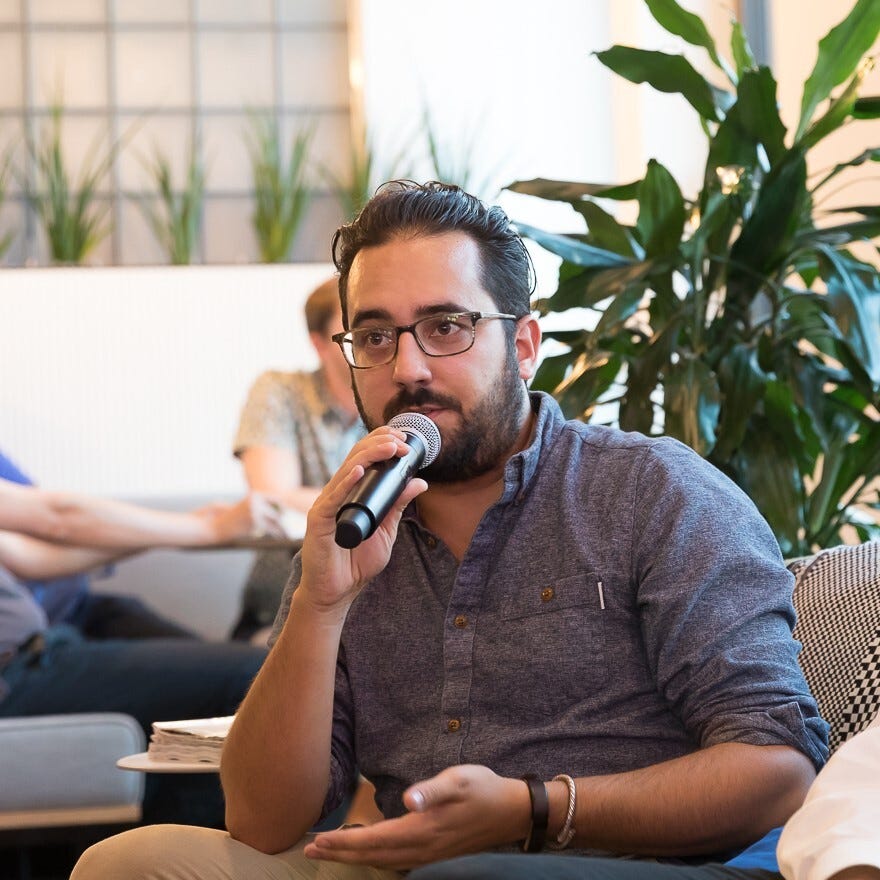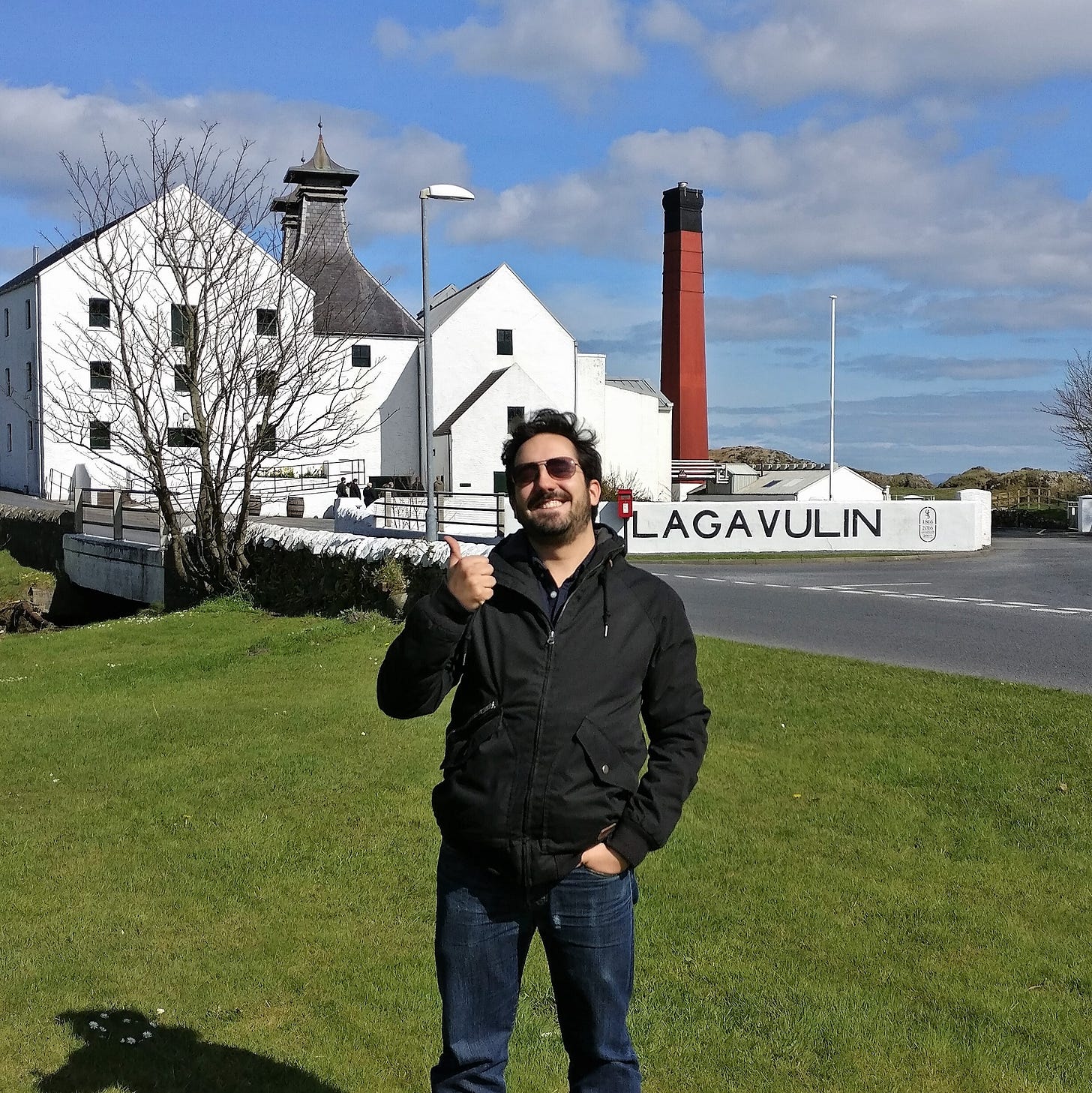Profile: Charles Ahmadzadeh, Engineering Manager
We talk with Charles about autonomy, workplaces that encourage speed, life in Germany and extremely spicy food.
The following phone interview was edited before publication. Clipboard Health will be publishing a regular series of interviews to highlight our incredible team, share what we’re accomplishing and to give a window into our unique work culture. Enjoy!
Tell me about your skillset - what do you do now? What new skills are you trying to pick up?
Honestly, it’s not the specifics that have helped me the most here. I’m more of a generalist, and I can work with front-end and back-end services. I have a fairly wide understanding of software engineering at a lot of levels. That’s helped me to do my best work, for instance by taking big, monolithic things and breaking them down into smaller, modular services. I’ve done that at larger companies as well, but it’s especially useful in our startup environment.
I think people who have worked at multiple startups are often like that, that their greatest asset is their general experience. They understand how tech debt happens and how to avoid it. They’ve seen through entire processes from start to finish multiple times and have that experience to draw from. If you’ve seen a lot of the potential successes and failures a business goes through, you are more able to move the needle towards good outcomes than someone who has very specific skills, but hasn’t had the same hands-on experience.
What made you choose Clipboard Health? Engineers have a lot of choices in the market right now. What drew you here?
Four years ago, I co-founded a start-up and from then until recently I worked there in the capacity of CTO and founder. We had a rocky start, but just in the last four or five months found our product market fit. At the same time, we got a team in place that can execute by themselves, which freed me up to do more and look at new opportunities.
I worked out an exit plan that was good for everyone with the other founders, and started looking for ways to have a real impact in areas like sustainability and positive social effects. I checked out NATO, some NGOs, and didn’t find anything that made the kind of impact I was thinking of. After that I started looking at Y Combinator, specifically for companies that were past the seed stage but weren’t so huge that new hires have no impact.
I found Clipboard, and the pitch really resonated with me because my mother had been a nurse in France and I had seen a lot of the troubles she had gone through. When I wanted to go to college for Comp-Sci, she and my father crunched the numbers and realized they wanted to make more money to help me with that, so she transitioned to healthcare facility management, and I saw a lot of the struggles they have on that side, as well.
So there was this great opportunity to help a lot of people, the company was in the right stage, and I liked everyone I talked to in the interview process. Everything just fell into place.
Tell me about yourself. Where are you from? What do you enjoy doing?
I am originally a French citizen. My mother is French, and my father is from Iran. He left during a period of political and social trouble and never went back. I lived in France for most of my life, but I now live in Germany to be close to my partner and her family.
I’m not sure if it counts as a hobby, but I love to eat spicy food. Carolina reaper spicy, I mean. In a previous job I had a lot of stress, and I’d put hot sauce on my food in the morning to sort of “start things on a high note”. It wakes you up!
I can’t eat spicy food like that. I think I’m just weak-willed.
It’s a tolerance you build over time. I also found out it’s something you can lose; sometimes I’ll go on a break from the very spicy, high capsaicin hot sauces, and I have to build up my resistance to it every time.
Do you watch those YouTube videos where people eat the spicy hot wings?
I do, sometimes. They are funny, and I like the culture of it. In Berlin, there’s a snack called curry wurst; you eat it with fries. It’s really good, and some places have a “hot ones” type challenge where they have a lot of different sauces at different strengths. It’s a lot of fun to eat there and watch people try it.
Where do you see the company going over the next few years? What opportunities do you see coming? What risks?
I’m working with two teams right now. One is the QA team, where my generalist background is really helpful. I worked at a company that built medical devices in this capacity before, and we are looking for that same kind of very low failure rate but executed in a more elite way with more speed. And that’s doable. Even at our size, we are generally faster than your average seed-stage company.
What are some things you can do at Clipboard you couldn’t do anywhere else?
Autonomy and speed make a huge difference to how I join projects and what I can accomplish once I’m there. I recently joined a big, important project right mid-stream and there’s a certain amount of catch-up work you have to do to get up to speed, but everything moves fast around here. We have an expectation that people remove “blocks” for others in the company very quickly, usually the same day. So I was able to get caught up much quicker than I would anywhere else.
After that, I have a lot of autonomy. Once I was unblocked, I was able to move forward with the things I needed to do without any red tape getting in the way. There’s no CYA, no KPI-goalkeeping. If you want to make something happen, you can, and the support is there to make it happen.
I work closely with Kevin (Editor’s Note: Kevin Jose, another Clipboard Engineer) and I was in close communication with him when one of his projects was coming to an end. We realized our facilities needed better ways to contact us when problems occurred; he jumped on that and went from 0 to shipped in a month and a half at a very high level of quality.
That’s incredibly fast.

